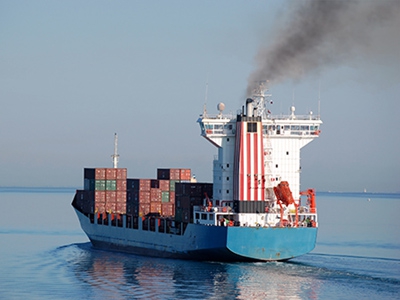Ensuring efficient enforcement of stricter requirements for ships’ sulphur emissions
Compliance with the regulations is of importance to the environment. But, at the same time it is important to Danish shipping that no shipowners get a competitive advantage by speculating in cheating with the content of the fuel. Therefore, efficient and consistent enforcement of compliance with the regulations is decisive.
This is the reason for presenting an action plan today that contains a number of specific initiatives. The action plan is an extension of the Danish Government’s Plan for Growth in the Blue Denmark, which contains an initiative entitled “Improved enforcement nationally and globally”.
The initiatives have been identified in dialogue with the Danish Environmental Protection Agency and the Danish Shipowners’ Association, and continued cooperation is envisaged.
The action plan is based on four focus areas: International cooperation, the development and use of new technology, improved statistics and documentation on non-compliance as well as sanctions.
| The action plan is based on four focus areas: |
|
“With the action plan, Denmark takes an important step in the struggle to ensure efficient enforcement of the sulphur regulations. It is of decisive importance to quality shipping that our control is sufficiently efficient. Efficient enforcement benefits both the environment and the competitiveness of a responsible shipping industry,” says Director General of the Danish Maritime Authority Andreas Nordseth.
An important element in the debate on enforcement is the issue of imposing sanctions. This concerns partly the size of the sanctions, partly whether the authorities have at their disposal the necessary instruments for ensuring efficient sanctioning. In addition, the availability of a homogeneous and solid data basis is a pre-condition for arranging efficient control procedures.
Cooperation with the industry
Efficient and consistent enforcement cannot be ensured by the public authorities on their own.
Therefore, it is important that – when developing new control initiatives – there is a close dialogue between the maritime industry and the relevant authorities, including especially the Danish Maritime Authority and the Danish Ministry of the Environment.
In addition, it is possible for the organisations of the maritime industry to contribute significantly to focusing on the need for more efficient enforcement through the relevant international fora in which the organisations take part.
The Danish Maritime Authority has already launched the action plan by inviting a number of Denmark’s “allies” in the struggle for efficient enforcement to Denmark in June this year. The purpose of the meeting is, inter alia, to consider the possibilities of closer, informal cooperation between the countries.
In order to ensure that non-compliance does not pay, another initiative listed in the action plan involves a closer scrutiny of the size of fines as well as legal prosecution of ships not calling at Danish ports.
Source: DMA
For more information please read theentire action plan here






























































